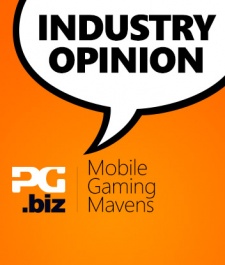With the mobile market growing so quickly, it seems irrational for studios not to focus on the big two - iOS and Android, perhaps with an ear tuned to Windows Mobile, whenever Nokia gets it hooked up.
But is that really the case?
This week we asked our Mobile Mavens - Would induce you to develop for small/niche OSes such as bada, webOS, BlackBerry QNX, etc. - or are these effectively dead in the water?
The biggest issue was the classic small business demand; 'We need more support'.
Christopher Kassulke of cross platform publisher HandyGames summed this up as developers wanting "SDKs, contracts, reporting tools, payment periods, test devices, simple but clear rules, people you can talk to, promotions, dollars, etc."
Laying the foundations
He also pointed out there needed to be a "critical mass market for free and/or ad-free content, and a place to get it (a store)... and a fair business model - no hidden costs, extra testing, porting, certification costs, etc."
Hence for platforms that are niche, Kassulke said the platform holder had to be prepared to invest heavily. "A platform/OS without content is dead." he concluded.
Kyu Lee of publisher Gamevil called out Nokia and Microsoft for not enabling native development for Windows Phone.
"It only took months for Google to open NDK [for Android] ... I am curious why Microsoft is still to support. They need this to do some serious amount of catch up."
Tower Studios' Jon Hare said having standards across platforms was very desirable. "What we need is all of these systems to establish and conform to some basic principles in regard to socialisation, monetisation and returns policies," he said, hopefully.
What's my motivation again?
Of course, the main barrier is the cost of supporting something new.
As Jani Kahrama of Secret Exit put it, "For the developer it's just a matter of porting cost and opportunity cost versus expected sales."
Bolt Creative's Dave Castelnuovo agreed.
"I think it depends on your size and perceived revenue potential on iOS and other platforms. Many of these smaller platforms pay you to port your game. If you have a team that is available, it might be worthwhile to do it, get a little bit of revenue, and have the platform maker pay to advance your technology."
However, as a team of two, Bolt has worked with publishers such as ngmoco to get Pocket God to Android and Windows Mobile.
Other barriers such as file size limits, can prevent platform shifts; as Kyu Lee argued. "DSiWare sales have increased due to the 3DS eShop launch and may be worthwhile, if you can squeeze your app into the file size limit."
Purity or promiscuity?
Unsurprisingly, there was some disagreement about the size and profitability of the various markets.
Brian Baglow of Revolver PR shared a case study showing that "the traditional mobile market is growing faster than ever - 400 percent in the last 12 months."
Yet Mills from upcoming developer ustwo thought there was "no money outside of iOS."
But beyond cash, he took a purer approach. "Personally I only ever want to work on platforms that are as close to perfection as possible. These platforms lure users/customers who appreciate pure quality and more importantly understand that their phones are actually gaming machines that will replace the console."
Richard Hazenberg of cross platform publisher Lunaforte disagreed. "We find that working across multiple ecosystems helps spread risk and increases the potential of apps that are successful," he said. Matt Meads of Herocraft completely agreed.
A more fundamental disagreement came from Joony Koo of Com2uS. He thought the only OSes worth developing for were iOS and Windows. "Android is playing catch up," he said.
Fill the gaps
Kevin Dent of consultant Tiswaz wasn't so sure.
"You have to keep in mind that Google seemed to develop the platform in the hopes of creating a platform that was terrible for gaming. However, it is still an economically viable platform," he said.
Similarly, he thought barriers to entry were a bonus for developers who could afford to overcome them, relating his success on Windows 7.
"The same thing happened with the PSPgo," he added. "Everyone ignored it, I drove content onto the Minis store and the numbers made sense ... In short, I will whore myself out to whatever platform you guys ignore."
Christopher Kassulke chimed in. "Niche development can be profitable as you have less competition, easier promotions, longer life period, more channels," he commented.
Still - forthright as ever - Mills reckoned moving to a new platform was "commercial suicide". We won't bother asking if his new game Whale Trail is coming to Android.





















